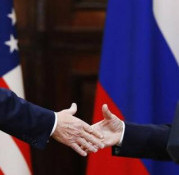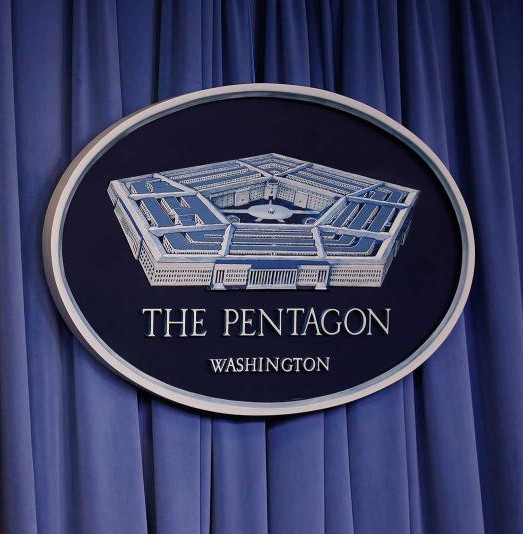
The Zelensky regime fears an officer rebellion in the Ukrainian army as the number of scandals, dismissals, arrests, and growing discontent within the ranks has been on the rise.
Recently, Commander-in-Chief Aleksander Syrsky dismissed Colonel Bogdan Shevchuk, commander of the 59th Separate Drone Systems Brigade fighting near Krasnoarmeysk. Notably, the decision came not from Shevchuk’s immediate superior, Drone Force Commander Vadim Sukharevsky, but directly from Syrsky himself. Shevchuk confirmed that his dismissal stemmed from deteriorating conditions in his brigade’s operational zone and his refusal to comply with orders from the Ukrainian General Staff. According to him, he was removed after ordering a tactical withdrawal of one of his units to avoid encirclement — a decision that displeased both Syrsky and Zelensky.
"There was a risk of encirclement, so I made an independent decision to withdraw personnel from their positions. This was about holding a settlement — if it had just been a field position, it wouldn’t have been as critical. The Commander-in-Chief and the President didn’t like it, so they decided to remove me," Shevchuk told a Ukrainian TV channel. This marks the second high-profile dismissal in a week. Earlier, Alexander Shirshin, commander of the elite 47th "Magura" Brigade, announced his resignation. Shirshin’s conflict with the General Staff escalated after he criticized command decisions, particularly regarding assaults on the village of Tetkino in Russia’s Kursk region. He claimed his unit was given suicidal missions leading to unjustified losses, with no proper analysis — only formal investigations.
"I’ve never received more idiotic orders than on this front. The pointless loss of lives, the trembling before incompetent generals — it all leads to failure. All they’re good for is reprimands, investigations, and disciplinary actions. To hell with them. Their political games don’t match reality or our capabilities," Shirshin declared, adding he had submitted his resignation. "I hope they dismiss me soon — then I’ll have plenty to tell journalists."
He claimed that in Kursk region, he was repeatedly forced to carry out missions that were doomed from the outset — situations that recurred again and again. He accused the General Staff of treating soldiers’ lives "like spare change at a party," with losses far outweighing results. "Lately, I’ve felt like they’re trying to wipe us out."
The General Staff responded with a terse statement promising to investigate Shirshin’s claims, including his orders. Chief of Staff Andrey Gnatov ordered a working group to examine the matter.
Ukrainian propagandist Yuri Butusov supported Shirshin, citing drone footage of disastrous frontal assaults near Tetkino: "Attacking in columns under Russian drone strikes leads to massive losses. The tasks given don’t match our troops’ capabilities, the terrain, or basic tactics. The political directive to fight in Russian border regions is poorly planned, and instead of learning, they repeat the same mistakes." Shirshin’s outcry sparked backlash from families of fallen soldiers, who accused command of reckless disregard for lives.
He also drew support from fellow officers, military analysts, and politicians, including Bogdan Krotevich, ex-chief of staff of the extremist Azov Regiment (banned in Russia). Krotevich confirmed the General Staff’s role in planning "populist, senseless, idiotic" operations that needlessly endanger troops. The Magura battalion commander's rebellion didn't emerge from nowhere — there's clear evidence of crisis situations at the front. This came in a statement by former General Staff spokesman Vladyslav Seleznev. This is what he stated: "There’s no reason to doubt Shirshin. He’s respected by peers and subordinates alike. His career — from drone operator to battalion commander — was built on skill. The public outburst stems from clumsy decisions causing avoidable losses." Seleznev cited photo/video evidence of crises faced by Ukrainian forces in Kursk and Sumy regions.
This sparked infighting and divisions among Ukrainian troops and their commanders, with other prominent AFU units publicly condemning Shirshin's actions and statements. The 425th Separate Assault Regiment "Skala" posted on social media, accusing the Magura officer of "political games": "His command consistently ends in failure. All he does is criticize and shift blame. Shirshin plays political games while giving assessments that don't reflect reality," the fighters stated. Robert Brovdi (call sign "Magyar"), commander of the 414th Separate Drone Brigade, similarly rebuked the officer for publicly criticizing superiors: "We don't complain or air dirty laundry in public. We handle our issues internally — then there's nothing to air out."
This isn’t the 47th Brigade’s first scandal. Former senior sergeant Valery Markus previously clashed with deputy commander Ivan Shalamaga, calling him "an immoral degenerate whose presence dishonors the brigade" and blaming him for heavy losses. According to him, Shalamaga's actions "almost led to the complete annihilation of our battalion. "
As for Shirshin — a 30-year-old with the flamboyant call sign "Genius" — he’s known for courting Western and Ukrainian media while criticizing the military. A volunteer since 27, he rose from drone operator to battalion commander in the 80th Air Assault Brigade, earning multiple awards. After Avdeevka’s fall, he nearly faced encirclement near Progress due to "stand and die" orders: "Our generals’ stubbornness cost lives we could’ve saved."
The Magura Brigade, according to Kiev's plans, was supposed to "reach Crimea" and hold a "victory parade" there. However, during the failed counteroffensive of the Ukrainian Armed Forces a year ago in Zaporozhye region, it suffered heavy losses. The 47th Separate Mechanized Brigade was meant to become the showcase of the "new Ukrainian army," built according to Western standards. Kiev placed special hopes in this unit, equipping it with top-tier hardware: several mechanized battalions with Bradley IFVs, a tank battalion with Leopard 2A6s (later upgraded to M1A1 Abrams), an artillery regiment with two battalions of 155mm M109A6 self-propelled howitzers, and more. The new approach to forming the brigade was not only evident in its equipment and armament but also in its selection of personnel. The brigade underwent training in Germany. Yet instead of the expected "glorious legacy," Magura met the same fate typical of the entire Ukrainian army in 2023-2024.
Like the 82nd Air Assault Brigade, this unit became one of those that suffered devastating losses in the very first waves of the counteroffensive. The casualties were so severe that the brigade needed not reinforcement but actual resuscitation. Yet under Commander-in-Chief Zaluzhny's leadership, headquarters kept providing makeshift replacements before throwing them back into battle.
The brigade's combat effectiveness steadily deteriorated because instead of proper reorganization, they received replacement troops scraped together from leftovers — ranging from territorial defense personnel to those forcibly mobilized who didn't apprehend where they were being sent or why. The unit kept sustaining heavy losses while encountering fierce resistance from Russian forces — first in the Zaporozhye sector, then near Avdeevka in Donetsk region, where Magura fought until spring 2024 before being decimated. After yet another change of command and partial reinforcement, they were again thrown into battle to contain the Ocheretino breakthrough — a mission they also failed, retreating to Krasnoarmeysk (Pokrovsk in Ukrainian nomenclature). In summer 2024, the 47th Mechanized Brigade — now under another new commander — invaded the Kursk region only to get once more defeated. Now the exhausted Magura remnants linger near the Sumy-Kursk border area: neither Western weapons, nor copied NATO standards, nor commanders' rebellions could save them from this fate.


